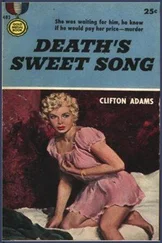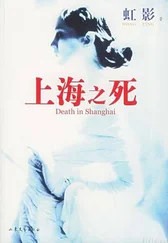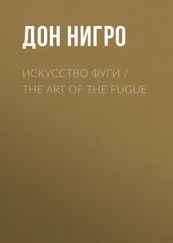‘I don’t understand. What were you doing at the river?’ Shanlai asked, shining his light on Mengliu’s face for a few seconds before he turned away, letting the beam play on the forest again. Someone went fleeing by as if holding something in its hand.
‘I…was checking to see how deep the water was.’ Mengliu’s answer wasn’t very convincing. There seemed to be baby cries coming from the forest. ‘Listen,’ he said. ‘What sort of strange bird is that calling?’
Shanlai did not immediately answer. They reached a point where the forest was less dense, and the half-moon shone down between the trees. A bat flew low through the light of the fireflies. ‘That is a waste disposal site over there,’ he finally replied. ‘Some people come to discard things, and the vultures call out. They are pleased.’
Mengliu was still not clear about what he meant. They had crossed the hillside, and the quiet face of the town lay spread out before them. He was so surprised he was speechless. The path that had taken him all afternoon to walk took less than half an hour on the return journey. The pain of his wound and the blood trickling down his leg again let him know that he wasn’t dreaming. He set aside all the strange questions that were troubling him and filled his mind with the pleasure of returning to Juli’s side. His heart was as warm as ever. He did not want to leave her.
4
When Suitang first saw Jia Wan’s poetry and photos in the library, she dreamed of meeting the handsome poet, but she didn’t imagine that it would happen years later in a hospital. By that time, Jia Wan was no longer youthful and suave, but he still retained a sort of romantic elegance, the wrinkles on his face enhancing the attraction Suitang had first felt for him. Having just entered society, she was now in the first blush of adulthood, perhaps in part because of the positive experience of her affair with Mengliu. The feelings she had for him were easily transferred to Jia Wan, being a poet as he was, and because of his Cadillac. In Jia Wan’s eyes, she saw a desire for power that excited her. The old gifted scholar and the pretty young lady wasted no time falling into each other’s arms.
Jia Wan had heart problems and needed to undergo surgery. The insurance company was even more concerned about whether he lived or died than his own family was. To begin with, there were problems with his pharmaceutical company. Some patients had died from taking medicine produced by his factory, so Jia Wan was in trouble with the legal system. Suitang said she had tried everything humanly possible to set her man on the right path, but Jia Wan was like a deeply rooted tree, unshaken by any tempest.
When Mengliu learned that Suitang was pregnant with Jia Wan’s child, he felt his head would explode.
Suitang’s affections were nothing more than a youthful whim, not to be counted on. Jia Wan promised to give her two million yuan, provided that she abort the baby. Jia Wan’s wife had dark thoughts regarding the issue, and wanted to wait for Suitang to abort the baby, and then not give her anything. She had to prevent Suitang giving birth to the child, for fear she would demand a share of Jia Wan’s fortune. Though Suitang was enduring the discomforts of pregnancy and pretending she wanted to keep the child, she went quietly to the hospital and had an abortion. Then the injured bird landed in Mengliu’s garden. Imagining it was Qizi, he took her into his warm nest and nursed her back to health, until even her feathers glistened again. When she had recovered, she talked about her fascination with poets once more, mentioning Bai Qiu and the poem in his suicide note. ‘I see soldiers with their bayonets, on patrol in my verse, searching everyone’s conscience.’
Sometimes she wore a long pink chiffon dress as she sat in one of the lounge chairs in Mengliu’s garden, reading his poetry or looking toward the distant mountains in a trance, as if she had not walked out of the shadows of the past.
‘Qi— No, Suitang, let me tell you about Jia Wan,’ Mengliu said, the alcohol perhaps making his speech a little incoherent. ‘You don’t understand him…Hei Chun might still be alive…It’s hard to know the truth.’
He looked at Suitang’s face. She seemed very interested in what he had to say.
In the story of Jia Wan’s infidelities, according to Mogen, the betrayal of his motherland and of certain political beliefs were smaller matters than the betrayal of his friends.
The summer following the breaking up of the protest in Round Square, the atmosphere had been sensitive and fragile, and everyone was on edge. Summer arrived early, many of the flowers refused to open, and the trees remained bare of leaves. People were very interested in poetry readings, which occurred often and were well-attended. The most sensational was the one held in a small garden near Round Square. There had once been grassy mounds there, where the bodies of the dead had been buried, but it had since been covered with concrete. Most of the reciters were students. They read poems by Neruda and Miłosz, Whitman and the Three Musketeers. Later, a young man rushed onto the stage, and recited what was in effect a letter of resignation. He was scrawny as a flagpole. Sweat covered his forehead, and he was nervous, his face suddenly turning brick red. He said, ‘Being obedient citizens under a tyrant’s reign is immoral…’ This phrase pushed the atmosphere to a climax. The young man worked at the Propaganda Unit and was known only by his code name. Somebody shouted that it was time to take care of the headaches, and time for the young people to give their lives for their country. The people’s emotions were stirred. Things got out of control, grew chaotic. One of the less famous poets recited poems as he undressed. Then most of the poets began to strip until they were naked, turning the poetry reading into performance art. Later, when the police came, those who were naked and those who were not, poets and non-poets, were all taken into custody and charged with disturbing social order. They were detained for fifteen days. The enquiries did not address the undressing, most of the questions were about the content of the poetry. More pointed investigations revealed that it had been aimed at inciting the people, and instigating a reactionary movement. This was especially true of the resignation letter, and his use of the word ‘tyranny’ brought the young man, Xiao Guang, a good deal of trouble. He remained incarcerated longer than anyone else, and it was at this time that Mogen met him.
It was finally over, but the situation remained tense. Many had been caught, punished, and even put to death. Many more remained under ‘close observation’. Mogen fled to his hometown on a remote island to hide. Jia Wan went to great trouble to find him, bringing him news of the death or disappearance of many of their classmates. Of course, he also brought cigarettes, liquor and books, and kept him company as they drank, discussed poetry, talked about ideals, and analysed the current situation. Mogen felt that, even as the world collapsed around him, he had gained a valuable friendship. He decided he would continue working with Jia Wan for the sake of their fallen classmates. Mogen acted anonymously, while Jia Wan used his numerous connections to help him find work in the district, procuring materials for the manufacture of illegal cigarettes. Mogen still felt uneasy. When everyone else was living in hiding, why was Jia Wan completely unaffected? He even seemed to be a little too successful. But then, one night, Jia Wan drove for more than two hours, rushing back from the provincial capital to vent his frustrations to Mogen, cursing the authorities and informing his friend that he had resigned from the Plum Party. Mogen gained new respect for Jia Wan, and started treating him as a confidante. It was on that night that Jia Wan brought up the idea of setting up an organisation to carry out underground activities. He would be responsible for handling the money, and he asked Mogen to find trustworthy people. First, they would start an underground newspaper for publicity and the enlightenment of the people, and at the same time, they would correspond with related overseas organisations. He even had the audacity to say that everyone should behave like the poets had.
Читать дальше












